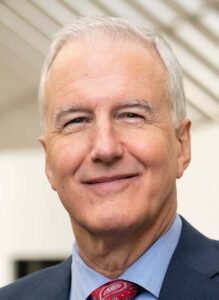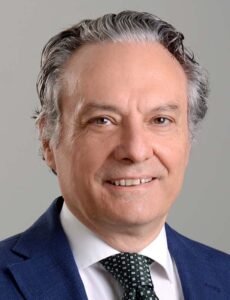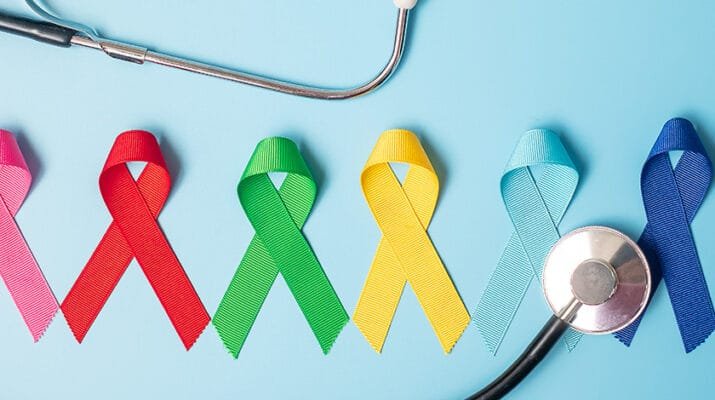New treatments offer more options for cancer patients
By Deborah Jeanne Sergeant
Chemotherapy used to be the standard treatments for many types and stages of cancer. However, in recent years, newer treatments have emerged, offering physicians more options.
“It’s a good sign,” said physician William Cance, chief medical and scientific officer for the American Cancer Society. “First, they’re not getting chemo and second, they’re getting more precision target therapies like immunotherapy.”
The movement away from chemotherapy began as researchers started to discover what drives a cancer to grow, spread and develop. Cance said that led to the development of drugs that can target that abnormality. Chemotherapy attacks any rapidly multiplying cell, whether malignant or healthy, which is why it causes so many miserable side effects and lasting health issues for patients.

“We’re seeing more and more of those drugs based on the genetics of the patient’s tumor,” Cance said. “That’s led to a plethora of drugs that target the ‘engines’ of those cells.”
Immunotherapy works by training the person’s immune system to attack the cancer cells. Cance said that cancerous tumors camouflage themselves to hide from the immune system.
“We’re getting good at turning on the patient’s immune response against the cancer,” Cance said.
The gamechanger in developing new treatments has been merging the biological, physical and digital facets of cancer treatment. In the past, research was based upon limited information. Now scientists can perform “complex analytics of who got what drug, what characteristics were in their tumor and their own characteristics,” Cance said. “Through big data approaches with artificial intelligence and machine learning, we’re starting to get more detailed analytics.”
Researchers are also beginning to look at the influence of the gut microbiome, the naturally occurring, beneficial bacteria living in the gut. Cance said some may affect the patient’s response to immunotherapy or chemotherapy.
Though immunotherapy works more like a sharpshooter instead of a machine gunner, it doesn’t mean that it causes no side effects. They can disrupt how the body’s immune system works and cause it to attack itself, a phenomenon known as an autoimmune disease.
“A key part of the immune system is it recognizing normal cells as normal and others as foreign,” Cance said. “When you take the brakes off the immune system, it can attack various tissues such as thyroid, gastrointestinal system and others. You’re shifting the balance towards a more reactive immune system that can react against the body.”

The autoimmune effects resolve once treatment is over, but damage done to organs, such as the thyroid, may not be reversible. Most of those effects are manageable. Cance hopes that with further research, fewer long-term effects will manifest. Researchers are also helping discover ways to become more precise in treatment and systematic as to who needs which type of treatment.
In addition to easier treatments, cancer patients also enjoy greater longevity with immunotherapy.
The next big step is making diagnosis even earlier, which increases the chances of effective treatment.
“We will get to a day where you’ll see your primary care provider for your cholesterol or whatever and get a multi-cancer early detection test,” Cance said. “Multiple companies are involved with this.”
He explained that cancer cells make their presence known by secreting DNA, waste and protein into the blood. By testing the blood for the presence of these materials, providers can determine if further testing and treatment is warranted.
While Cance does not envision a “magic bullet” for curing cancer, he does foresee a time when cancer will be more like a manageable chronic disease.
Lung cancer used to be treated with chemotherapy as a matter of routine. Now oncologists have other options. In addition to or instead of chemotherapy, care providers can offer immunotherapy, according to physician Roberto Pili, associate dean for cancer research and integrative oncology and professor and chief of the division of hematology/oncology in the department of medicine in the Jacobs School of Medicine and Biomedical Sciences at UB.
“Some cancer, like lung cancer, may benefit from targeted therapy if they have a specific mutation,” Pili said.
The patient’s medical team would need to discuss with the patient the options available for their type of cancer and what would best address it. For example, Pili said that immunotherapy may be contraindicated for people with poorly controlled autoimmune diseases, since they are already in an inflammatory state. The chances of experiencing bad inflammation as a side effect is only 1.5% in the heart, kidneys and liver and 10% in the lungs. About 30% of patients experience fatigue.
With chemotherapy, about 80% of patients experience fatigue, nausea and drop in blood counts.
Chemotherapy is still used for those who may not be candidates for immunotherapy and also sometimes coinciding with or alternating with immunotherapy.
“Chemotherapy has been the main therapy for lung and breast cancer,” Pili said. “There are selected patients who cannot respond to hormone therapy. There is immunotherapy that’s been approved with or before chemotherapy. Chemotherapy is still there as a very important therapeutic option.”
Learning more about the genomics of cancers will help providers better tailor therapies to benefit patients.
“The sooner we know about the genomic signature in tumors, the better it is with the patients,” Pili said. “Some patients benefit from immunotherapy early on rather than when they’re at a more advanced stage. I think it is exciting to have these new modalities that can go with chemo and in some cases, instead of chemotherapy.”
Whether used for lung cancer, bladder cancer, melanoma or other cancers, immunotherapy is increasing longevity for patients, as is hormone therapy for breast cancer and other hormone-driven cancers.
UB is beginning a new study on how nutrition impacts patients receiving chemotherapy and immunotherapy. Early animal research has shown that calorie restriction and reducing the consumption of animal-sourced protein may boost the immune system and increase the response of chemotherapy while reducing its side effects.
“In animals, we’ve seen a slow-down in tumor growth when changing the diet,” Pili said. “Diet and exercise make a difference in not only preventing cancer, but in helping patients who are receiving treatments.”

